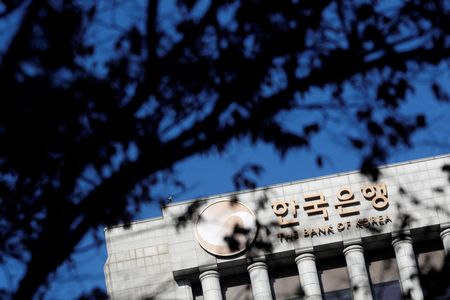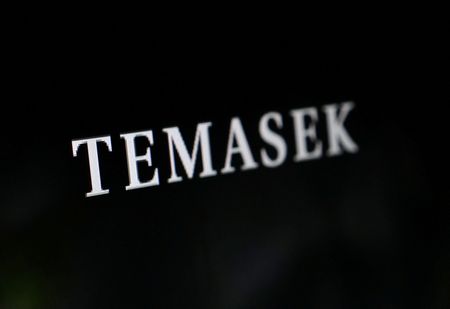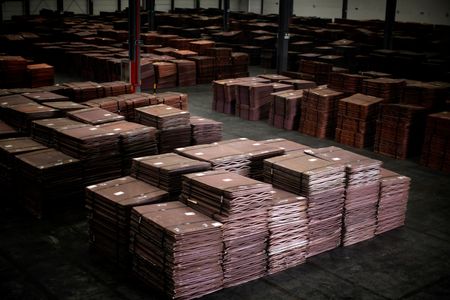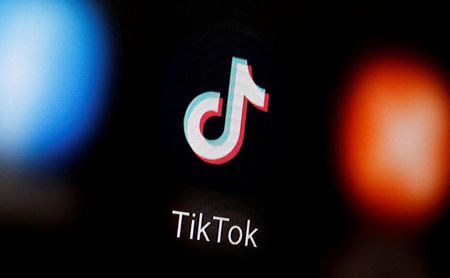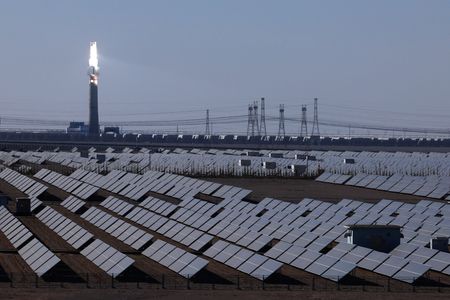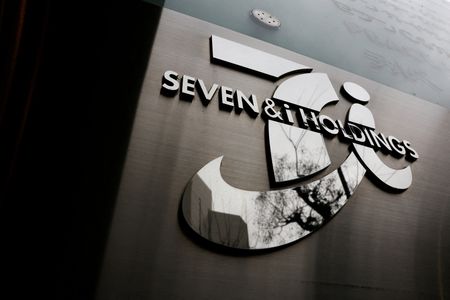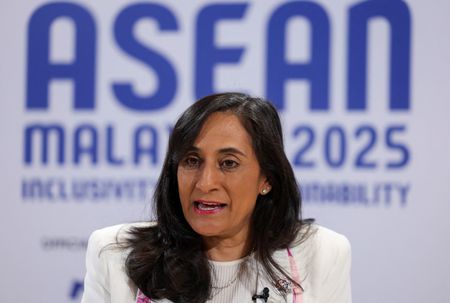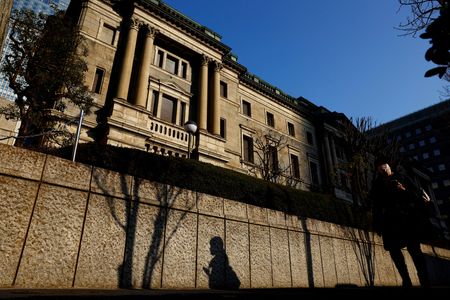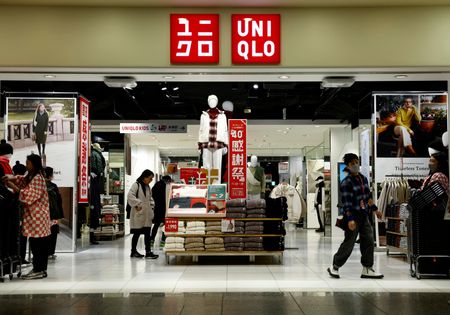By Jihoon Lee and Joyce Lee
SEOUL (Reuters) -South Korea’s central bank held interest rates steady on Thursday but a majority of board members signalled another rate cut in the next three months and warned of “significant” economic uncertainty from U.S. tariffs.
Asia’s fourth-largest economy unexpectedly contracted in the first quarter as the export powerhouse – like many other trade-reliant countries – grappled with Washington’s aggressive tariffs, fanning expectations of more interest rate cuts.
The Bank of Korea’s seven-member monetary policy board voted to keep its benchmark interest rate unchanged at 2.50%, an outcome expected by all 33 economists in a Reuters poll.
Four board members kept the door open for a rate cut in the next three months, BOK Governor Rhee Chang-yong said at a post-policy press conference.
The comment pushed up the country’s policy-sensitive three-year treasury bond futures as much as 0.14 points to 107.29.
In a policy statement following the decision, the BOK said there were “significant uncertainties concerning developments in trade negotiations with the U.S. and concerning the pace of recovery in domestic demand.”
The central bank reaffirmed its commitment to an easy policy path to fight off risks to economic growth while noting its concerns about high household debt and the need to “assess the effect of the macro-prudential policies.”
Ahn Yea-ha, a fixed-income analyst at Kiwoom Securities, maintained her forecast for another rate cut next month, saying the BOK “was less hawkish than expected.”
“If household debt growth stabilises between July and August, a rate cut will be easily possible in August,” she said.
Economists expect the central bank, which has lowered interest rates by a cumulative 100 basis points since October, to deliver at least one more rate cut of 25 basis points this year to underpin the economic recovery.
Earlier this week, U.S. President Donald Trump ramped up the trade war he launched this year, telling partners, from powerhouse exporters such as Japan and South Korea to minor players, that they will face high tariffs from August 1.
“At this point, it is really difficult to say when to lower interest rates and where the terminal policy rate will stand,” governor Rhee said, citing uncertainty over U.S. tariffs, not just on South Korea, but also on Canada, Mexico, Vietnam and China – major manufacturing bases for South Korean companies.
Rhee said the board will determine priorities between growth and financial stability risks after assessing more data.
Concerns of financial stability risks have grown in recent months, driven by home prices and household debt rising sharply on lower interest rates, prompting policymakers to introduce stricter mortgage rules.
The government last week adopted a second supplementary budget for the year with a cash handout scheme to boost domestic demand, as President Lee Jae Myung, who took office on June 4, prioritises shoring up an economy grappling with trade risks and tepid consumption.
“The hand that (the BOK) holds is clear, but there is uncertainty about when to play the cards,” said Ahn Jae-kyun, a fixed-income analyst at Shinhan Securities, adding that an August rate cut is a possibility.
(Reporting by Jihoon Lee and Joyce Lee, Additional Reporting by Youn Ah Moon and Yena Park; Editing by Shri Navaratnam)

